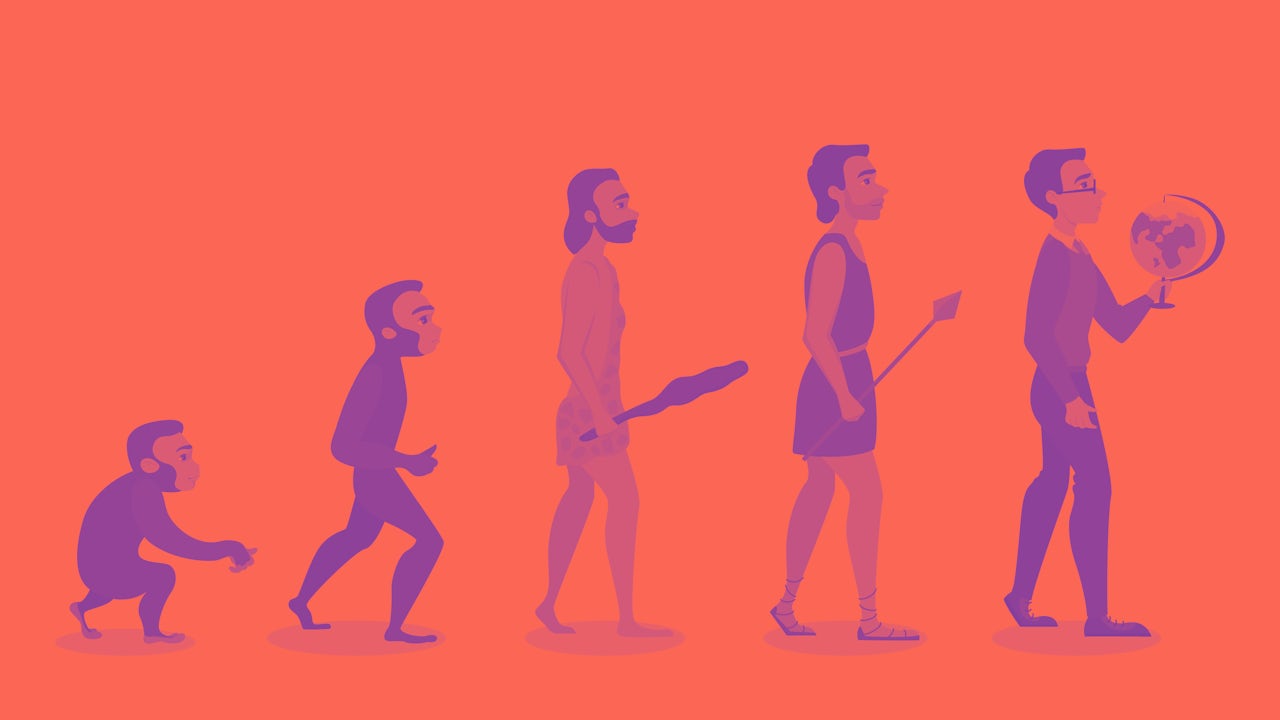New archeological research from the Australian National University has found that Homo erectus, our long-extinct hominid ancestors and the first hominid species to spend most of their time standing upright on the ground, probably died out because they were too chill. In a statement on the findings, lead researcher Dr. Ceri Shipton said that this laziness was evident from the unambitious way that Homo erectus went about making their tools.
At an excavation site in Saudi Arabia, Shipton and his team observed how stone axes made by Homo erectus were fashioned out of low quality rocks gathered from places around and nearby the camp. “Rather than walk up the hill” to good quality rocks just a short walk away, Shipton said, “they would just use whatever bits had rolled down and were lying at the bottom.”
This highly-relaxed attitude backfired after the rivers that once flowed through the Arabian Peninsula dried up. Homo erectus, whose lack of ambition was matched only by their complete inability to plan ahead, eventually found themselves in a predicament not unlike our own: they ignored the changing climate until it was too late. The water supply disappeared and then so did they.
For an extremely chill species, Homo erectus managed to achieve a lot during their reign on Earth, which began around two million years ago and ended only 100,000 years ago. As well as inventing what were probably the first stone axes, they harnessed fire to cook, engraved images in shells, and developed social systems for looking after the old and the weak.
This most recent study suggests that once a group of Homo erectus found a nice place to camp with adequate water and food, they would become risk averse and preferred staying home to going out and searching for a brand-new rock to make a sharper axe with. "They knew it [the quality rock] was there,” Shipton said, "but because they had enough adequate resources they seem to have thought, 'why bother?’”
This ultimately differentiated Homo erectus from later species of hominids, like Neanderthals and Homo sapiens (that’s us), who had a “grass is greener” attitude that led them to endlessly explore and innovate in search of the best possible resources.
